
by Admin | Jan 19, 2016 | Event Updates
A- CONFERENCES
Timeline of events during 2016:

B – PROGRAM DETAILS FOR 2016
I. The Boston Global Forum G7 Summit Initiative
Boston Global Forum will host several international discussions to begin a dialog among 50 world-renowned professors from Harvard, MIT, UCLA, Tufts, Stanford, Yale, Princeton, Oxford, Bonn Universities, University of Tokyo and leading cyber security experts and journalists.
- Topics of discussion:
- Developing strategies to Combat Cyberterrorism
- Advancing solutions to resolve the ISIS conflict
- Maintaining democratic and other values of the G7 and expanding those values to rest of the world in the 21st century
- Establishing new values that are in concert with the G7 in the 21st century
- Initiating Global Citizenship Education for the G7 Summit for Peace, Security, and Development.
Every 10-days, a world-renowned government official or scholar will lead a discussion with other participants and guests via online video conferencing. Following the online event, the discussion may be continued via group email.
A special Boston Global Forum Editorial Board will assemble the content and provide a comprehensive report to the leader of G7 summit host country.
- Timeline of events
All discussions will be held online from January 26, 2016 to April 21, 2016.

II. Global Cybersecurity Day December 12, 2016
BGF will continue its success in 2015 by further establishing December 12 as Global Cyber Security Day — and having the day universally recognized as the premiere annual event aimed at encouraging global citizens of goodwill to create a safe and secure internet environment. In New England, Global Cybersecurity Day 2016 events will be held at Harvard University Loeb House with ceremonies honoring Outstanding People in Cybersecurity.
- Conference Focus
- Theme: “Strategies for Combating Cyberterrorism”
- Honor the winners of World Leader for Peace, Security and Development 2016 Award
- Release the Boston Global Forum report on: Cybersecurity 2017
- Release the Boston Global Forum Cyber Threat Index for 2016
- Announce the winner of the Online Festival for a Clean and Pure Internet
- Report: Global Citizenship Education on educating people about the Ethics Code of Conduct for Cyber Peace, and Security (ECCC)
- Venue: Harvard University Loeb House
- Timeline of events:

III. World Leaders for Peace, Security, and Development and World Leader in Cybersecurity Awards 2016
The Nomination & Selection process will prolong one month. Winners will be honored in the Global Cybersecurity Day, December 12.
Timeline of events:

IV. Global Citizenship Education (GCE) in Cybersecurity
The GCE will focus on educating people on the Ethics Code of Conduct for Cyber Peace and Security (ECCC).
Timeline:
- January 26, 2016: Officially announce the program
- December 12, 2016: Report results on Global Cybersecurity Day
V. Michael Dukakis Leadership Fellowship Program (MDLP) 2016 -2017
The Program will seek out leaders in Cybersecurity in three categories: human being, policy, and technology.
Fellows will implement an action plan to encourage people follow the Online Festival and contribute to Global Cybersecurity Day.
Timeline:

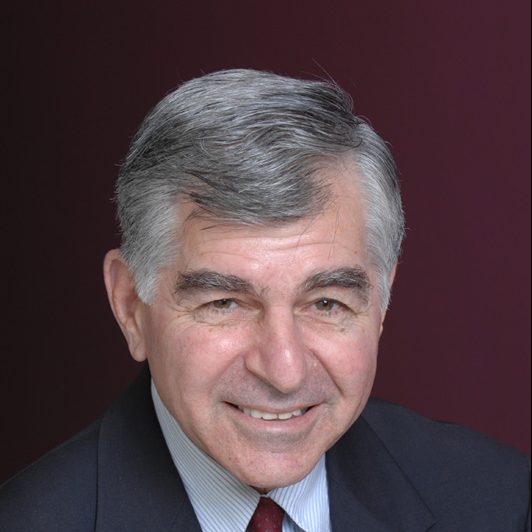
by Admin | Jan 28, 2016 | Uncategorized
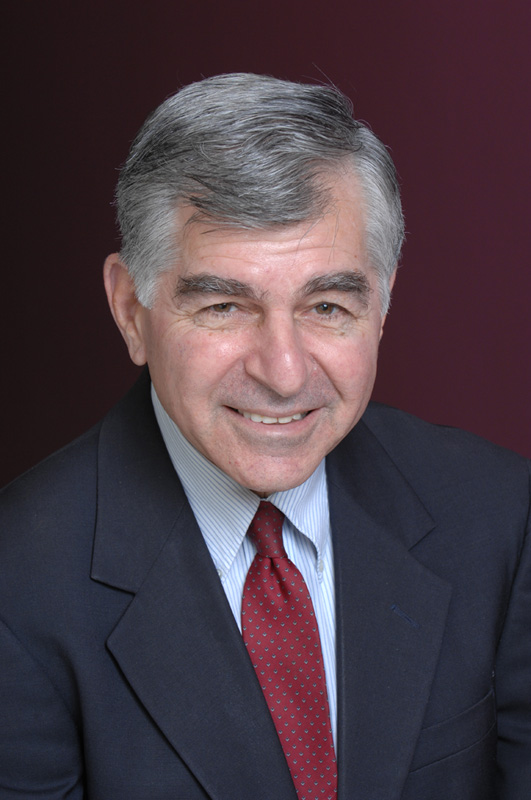
Co-Founder; Chairman of The Board of Directors and Board of Thinkers, The Boston Global Forum. Democratic Party Nominee for President of the United States, 1988. Distinguished Professor J.D., Harvard University
Michael Stanley Dukakis was born in Brookline, Massachusetts to Greek immigrant parents. He attended Swarthmore College and Harvard Law School and served in the United States Army from 1955-1957, sixteen months of which was with the support group to the U.S. delegation to the Military Armistice Commission in Korea.
He served eight years as a member of the Massachusetts legislature and was elected governor of Massachusetts three times. He was the Democratic nominee for the presidency in 1988.
Since 1991 he has been a distinguished professor of political science at Northeastern University in Boston, and since 1996 visiting professor of public policy during the winter quarter at UCLA in Los Angeles. He is chairman of Boston Global Forum.
He is married to the former Kitty Dickson. They have three children—John, Andrea and Kara—and eight grandchildren.
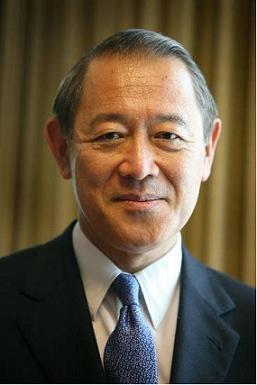
by Admin | Jan 28, 2016 | AI World Society Summit

President of the America-Japan Society, Inc.; Professor of Sophia University and Keio University; Ambassador of Japan to the United States of America (2008-2012).
Ichiro Fujisaki is currently President of America-Japan Society in Japan. He is also a distinguished professor of Sophia University and Keio University, both in Tokyo. Additionally, he is advisor to the metropolitan city of Tokyo.
Fujisaki served as the Ambassador of Japan to the United States 2008 through October 2012.
During this period, there were frequent changes in Japanese leadership, but he stayed on as a point person between Japan and the United States. Fujisaki was instrumental in bridging Japan and the US following the devastating earthquake and tsunami that occurred in March 2011. He frequently appeared on all forms of media, including national TV news shows. He was engaged in all of Japan’s negotiations with the US on security and trade issues, including Trans Pacific Partnership (TPP) consultations. Fujisaki has visited nearly all the fifty states, has met with local leaders, and has appeared on local media outlets.
Fujisaki is well connected to Japan’s political, bureaucratic, and business circles, having served more than 40 years in the Japanese government. As the Deputy Foreign Minister, he served as Prime Minister Koizumi’s personal representative to the G8 Summit as Sherpa. He was Japan’s chief trade negotiator and headed the teams for Free Trade Area agreement negotiations with the Republic of Korea, Malaysia, the Philippines, and Thailand. He has initiated and headed Deputy Ministerial dialogue with China. He also frequently traveled to India to lay the groundwork for large scale infrastructure projects which are currently underway. Fujisaki joined the Foreign Ministry of Japan in 1969 after passing the High Level Diplomatic Examination. He has served 20 years abroad and 23 years in Tokyo during his career.
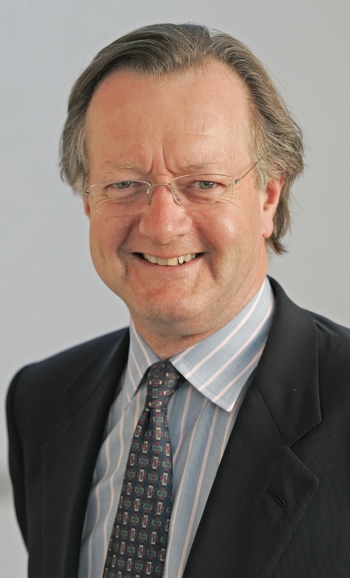
by Admin | Jan 28, 2016 | AI World Society Summit

Co-Founder, and Member of Board of Directors, Board of Thinkers , Boston Global Forum; Charles Edward Wilson Professor of Business Administration at Harvard Business School.
John A. Quelch is the Charles Edward Wilson Professor of Business Administration at Harvard Business School. He holds a joint appointment at Harvard School of Public Health as Professor in Health Policy and Management. He is also a fellow of the Harvard China Fund, a Member of the Harvard China Advisory Board and Associate in Research at the Fairbank Center for Chinese Studies.
Between 2011 and 2013, Professor Quelch was Dean, Vice President and Distinguished Professor of International Management at CEIBS, China’s leading business school. Between 2001 and 2011, he was the Lincoln Filene Professor of Business Administration and Senior Associate Dean at Harvard Business School. He served as Dean of London Business School from 1998 to 2001. Prior to 1998, he was the Sebastian S. Kresge Professor of Marketing and Co-Chair of the Marketing Unit at Harvard Business School.
Professor Quelch is known for his teaching materials and innovations in pedagogy. Over the past twenty-five years, his case studies have sold over 4 million copies, third highest in HBS history. In 1995, he developed the first HBS interactive CD-ROM exercise (on Intel’s advertising budgeting process). In 1999, he developed and presented a series of twelve one hour programs on Marketing Management for the Public Broadcasting System.
Professor Quelch’s research focus is on global marketing and branding in emerging as well as developed markets. His current research projects address (a) understanding the contributions of marketing to the functioning of democracies and (b) formalizing appropriate marketing and customer metrics for periodic review by boards of directors. Professor Quelch is the author, co-author or editor of twenty-five books, including All Business Is Local (2011), Greater Good: How Good Marketing Makes for Better Democracy (2008), Business Solutions for the Global Poor: Creating Social and EconomicValue (2007), The New Global Brands (2006), Global Marketing Management (5th edition, 2006), The Global Market(2005), Cases in Advertising and Promotion Management (4th Edition, 1996) and The Marketing Challenge of Europe1992 (2nd edition, 1991). He has published eighteen articles on marketing strategy issues in the Harvard Business Review, most recently “How To Market In A Downturn” (April 2009), and many more in other leading management journals such as McKinsey Quarterly and Sloan Management Review.
Professor Quelch has served as an independent director of twelve publicly listed companies in the USA and UK. He is currently a non-executive director of WPP and Alere. He served pro bono for eight years as Chairman of the Port Authority of Massachusetts. He is the Honorary Consul General of Morocco in New England and served previously as Chairman of the British-American Business Council of New England. Professor Quelch has been a consultant, seminar leader and speaker for firms, industry associations and government agencies in more than fifty countries. He is a member of the Trilateral Commission and the Council On Foreign Relations. He received the CBE for services to British business in 2011 and holds an honorary doctorate from Vietnam National University.
Professor Quelch was born in London, England, was educated at Exeter College, Oxford University (BA and MA), the Wharton School of the University of Pennsylvania (MBA), the Harvard School of Public Health (MS) and Harvard Business School (DBA). In addition to the UK and USA, he has lived in Australia and Canada.
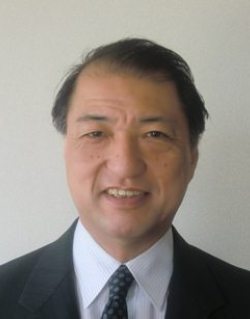
by Admin | Jan 28, 2016 | AI World Society Summit
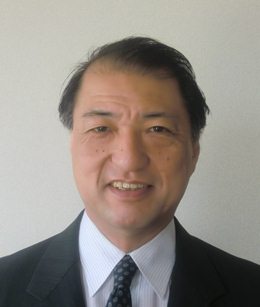
Consul-General of Japan in Boston
Mr. Himeno served at the Embassies of Japan in the United Kingdom, Washington, D.C. and Singapore, at the Permanent Mission of Japan to the United Nations and Other International Organizations in Geneva, and, immediately prior to his appointment in Boston, as Deputy Permanent Representative and Minister of the Permanent Delegation of Japan to the Organisation for Economic Co-operation and Development (OECD) in Paris.
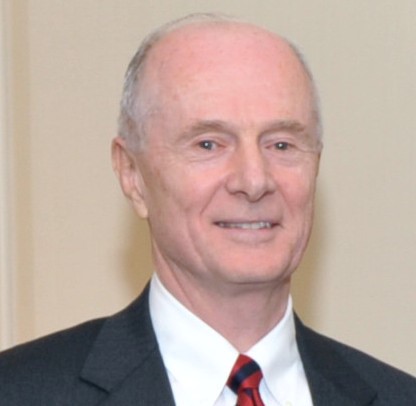
by Admin | Jan 28, 2016 | AI World Society Summit

An Wang Professor of Computer Science at Brown University
Professor Savage is the An Wang Professor of Computer Science at Brown University. Professor Savage earned his PhD in Electrical Engineering at MIT in 1965 specializing in coding and information theory. He joined Bell Laboratories in 1965 and the faculty of the Division of Engineering at Brown in 1967. In 1979 he co-founded the Department of Computer Science and served as its second chair from 1985 to 1991. By the early 1970s his research interests changed to theoretical computer science. His current research interests are cybersecurity technology and policy, reliable computation with unreliable components, computational nanotechnology, efficient cache management on multicore chips, and I/O complexity. He is a Fellow of AAAS and ACM, a Life Fellow of IEEE, and a Guggenheim Fellow. He is a recipient of a Fulbright-Hays Research Award. He served as a Jefferson Science Fellow in the U.S. State Department during the 2009-2010 academic year. He is a Professorial Fellow of the EastWest Institute.
His professional service has included service on the editorial board of the Journal of Computer and Systems Sciences and as a member of the MIT Corporation Visiting Committee for the Department of Electrical Engineering and Computer Science from 1991-2002.
His Books:
- Models of Computation: Exploring the Power of Computing, Addison-Wesley, 1998. (Freely available electronically!)
- The Mystical Machine (with S. Magidson and A. Stein), Addison-Wesley, 1986.
-
The Complexity of Computing, John Wiley and Sons, 1976; Robert E. Kreiger Publishing Company, 1987; Russian Translation. by Factorial Publishing, 1998
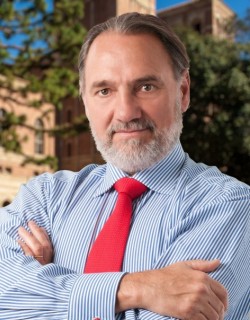
by Admin | Jan 28, 2016 | AI World Society Summit
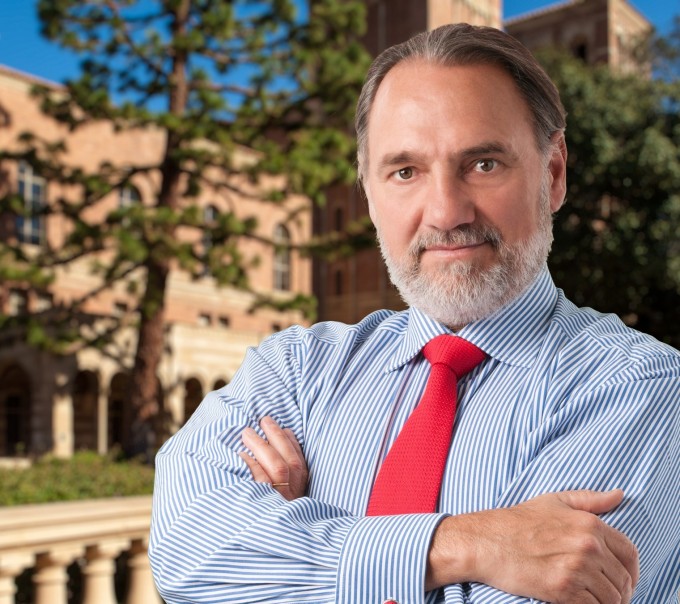
Member of Board of Thinkers, Boston Global Forum; Distinguished Professor of Education; Director, UCLA Paulo Freire Institute; UNESCO Chair in Global Learning and Global Citizenship Education
Dr. Carlos Alberto Torres is a political sociologist of education, a published poet and short story author. He did his undergraduate work in sociology in Argentina (B.A. honors and teaching credential in Sociology, Universidad del Salvador), his graduate work in Mexico (M.A. Political Science. FLACSO) and the United States (Master of Arts and Ph.D. in International Development Education, Stanford University), and post-doctoral studies in educational foundations in Canada (University of Alberta). He is a Professor of Social Science and Comparative Education at the UCLA Graduate School of Education and Information Studies and Chair of UNESCO-UCLA in Global Learning and Global Citizenship Education.
In 1991, in partnership with several colleagues, he created the Paulo Freire Institute, PFI, and is currently serving as its Founding Director at the Graduate School of Education and Information Studies at UCLA. He also served as director of the UCLA Latin American Center. Dr. Torres has been a Visiting Professor in universities in North America, Latin America, Europe, Asia and Africa. He has lectured throughout Latin America and the United States, and in universities in England, Japan, Italy, Spain, Tanzania, Finland, Mozambique, Argentina, Brazil, Mexico, Canada, Costa Rica, Portugal, Taiwan, Korea, Sweden and South Africa.
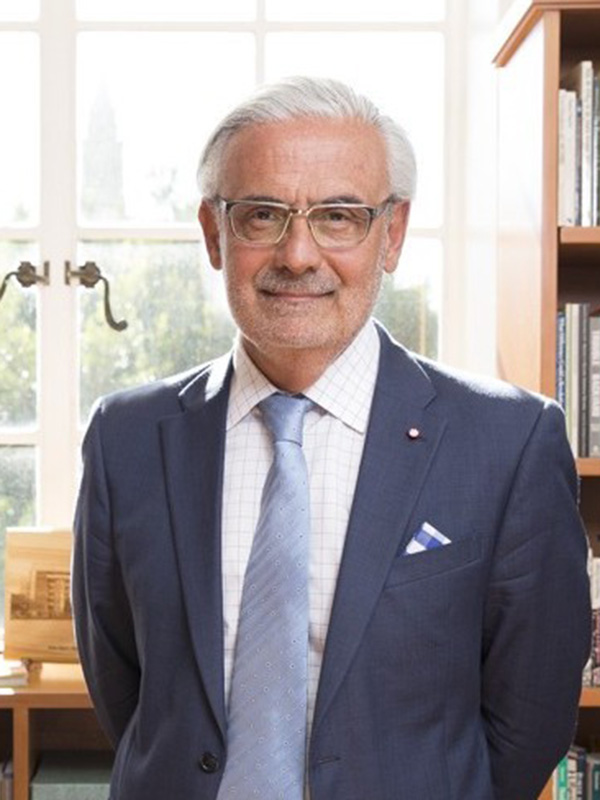
by Admin | Jan 28, 2016 | AI World Society Summit

Dean and Distinguished Professor of Education at UCLA Graduate School of Education
Marcelo M. Suárez-Orozco is Dean and Distinguished Professor of Education at UCLA Graduate School of Education, the author of “Central American Refugees and U.S. High Schools: A Psychosocial Study of Motivation and Achievement,” and co-author of “Learning A New Land: Immigrant Students in American Society.“
Marcelo Suarez-Orozco leads two academic departments, 16 nationally renowned research institutes, and two innovative demonstration schools at UCLA’s Graduate School of Education & Information Studies.
His research focuses on conceptual and empirical problems in the areas of cultural psychology and psychological anthropology with an emphasis on the study of mass migration, globalization, and education.
Upon arriving at UCLA in 2012, he founded the Institute for Immigrant Children, Youth, and Families, which he co-directs with Dr. Carola Suárez-Orozco, UCLA Ed & IS professor of education.
A native of Buenos Aires, Suárez-Orozco earned his A.B. in psychology, M.A. in anthropology, and Ph.D. in anthropology at UC Berkeley. At Harvard University, he served as the Victor S. Thomas Professor of Education and Culture (2001-2004), and co-founded and co-directed the Harvard Immigration Project in 1997. Prior to arriving at UCLA Ed & IS, Suárez-Orozco was the inaugural Courtney Sale Ross University Professor of Globalization and Education at NYU.
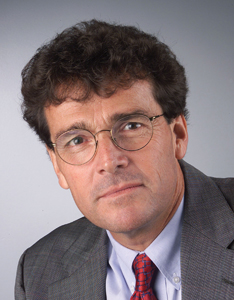
by Admin | Jan 28, 2016 | AI World Society Summit

Member of Boston Global Forum’s Board of Thinkers; Dean of the College of Communication, Boston University
Thomas Fiedler began his tenure as Dean of the College of Communication, Boston University on June 1, 2008, following a distinguished career in journalism. After graduating from the U.S. Merchant Marine Academy with a bachelor’s in engineering, he earned a master’s in journalism at COM. Later, he joined the Miami Herald, where he would work for more than 30 years, as an investigative reporter, a political columnist, the editorial page editor, and finally, the executive editor, from 2001 to 2007.
In 1987, after presidential hopeful Gary Hart told journalists asking about marital infidelity to follow him around, Fiedler and other Herald reporters took him up on the challenge and exposed Hart’s campaign-killing affair with a Miami model. The next year, Fiedler received the Society of Professional Journalists’ top award for his coverage of the 1988 presidential election. Three years later, his investigative work was part of a Herald series on a religious cult, which earned the paper a Pulitzer Prize. The Herald’s entire staff won another Pulitzer in 1993 for the paper’s coverage of Hurricane Andrew.
As the newspaper’s executive editor, Fiedler was a stickler for journalism ethics, particularly after reporters working for the Herald’s Spanish-language sister publication, El Nuevo Herald, were found to be on the payroll of a U.S. government–owned anti-Castro news service in 2006. Fiedler also pushed his reporters and editors to embrace the Internet as a critical means of news delivery, rather than as just an appendage of the newspaper.
He has also embraced new media as a Visiting Murrow Lecturer and Goldsmith Fellow at Harvard University’s Shorenstein Center on the Press, Politics, and Public Policy, where he investigated the impact of the Web on the presidential primary system and taught a graduate course on the intersection of media, politics and public policy. In addition, Fiedler co-directed a project, sponsored by the Carnegie Corporation and the Knight Foundation, exploring the future of journalism education.
In 2003, Fiedler received a COM Distinguished Alumni Award, and in 2005, the college presented him with the Hugo Shong Lifetime Achievement Award in Journalism. In 2006, he was elected a member of BU’s Board of Overseers.
















